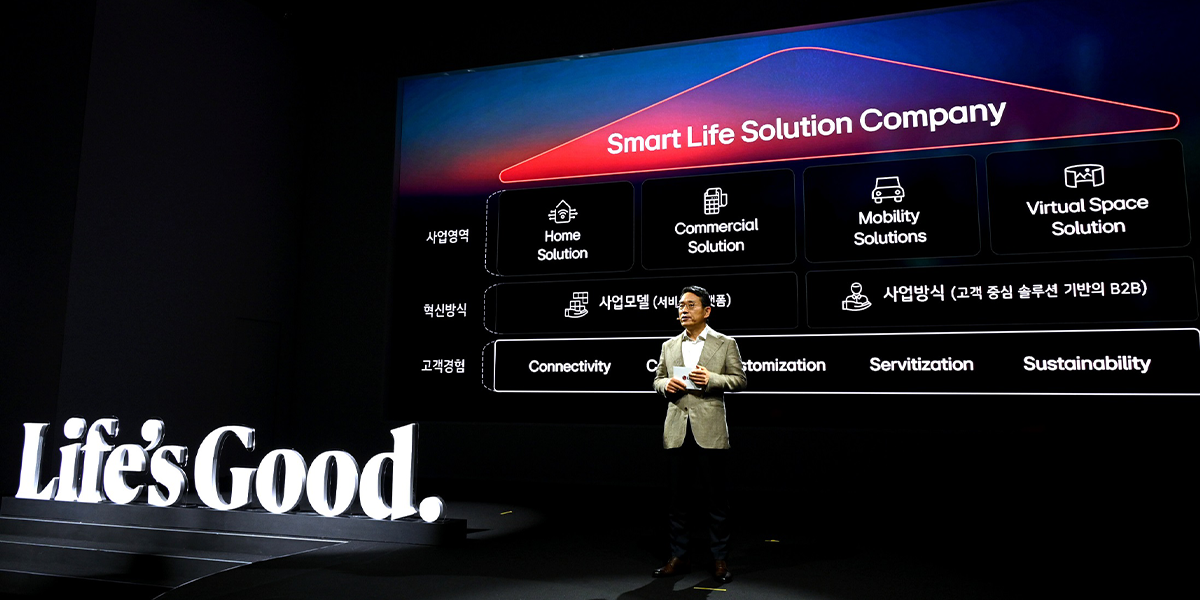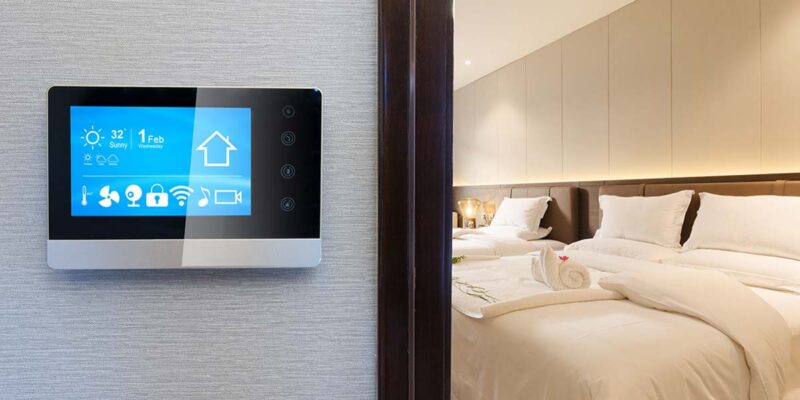LG Announces Plan to Become A Service-Based Company — Could Mean Giving Away Hardware for Free in Favor of Ads and Services

LG Electronics declared its vision to transform from its current position as a hardware-based home appliance brand to a “smart life solution company” (aka: SaaS company).
During a launch today at the LG Sciencepark in Seoul, South Korea, CEO William Cho outlined the vision built on three growth engines: pursuing new platform-based service businesses through the advancement of business portfolio, accelerating business-to-business (B2B) and exploring new business areas such as electronics vehicle charging and digital health. The CEO identified electrification, servitization and digitalization as key inflection points LG will focus on to achieve rapid mid- to long-term growth.
“LG will continue to pursue its bold vision to transform and leap forward as a smart life solution company that connects and expands customers’ various spaces and experiences, rather than resting on its current position as the best home appliance brand that provides quality products,” said Cho. “We will establish a brand-new LG by reinventing the way we work and communicate toward this goal.”
The CEO also highlighted the company’s financial objectives. “We will achieve Triple 7, which encompasses an average growth rate and operating profit of 7 percent or more as well as enterprise value to EBITDA ratio of 7,” said the CEO. “With the goal of raising sales from KRW 65 trillion last year to KRW 100 trillion by 2030, we will establish ourselves as a company that is properly recognized by the market and customers.”
Cho said LG will focus on the transition to the platform-based service business model, acceleration of B2B areas and procurement of new growth engines based on competitive edge as three pillars to focus on customer experience. By 2030, the proportion of these three pillars in sales and operating profit “is expected to increase to more than 50 percent.”
The company plans to invest more than KRW 50 trillion ($39.5 Billion US dollars) by 2030 for the qualitative growth of the business, including the advancing of the business portfolio led by the three new growth engines. This includes an R&D investment of more than KRW 25 trillion, facility investment of more than KRW 17 trillion and strategic investment of KRW 7 trillion.
The company is also accelerating the expansion of its B2B business, the CEO explained. LG’s rich understanding of customers as well as the know-how to communicate and empathize with customers that have been accumulated in the B2C business, which has seen continuous innovation over the past 65 years, will be fully expanded to commercial, mobility and virtual spaces.
So, what does this mean? Well, it could mean giving away hardware to get the sale of services.
During the same announcement, LG said this of its plan with consumer TVs:
LG will innovate with a platform-based service business model that continuously generates profits, such as content and services, subscriptions and solutions, to the hardware-oriented businesses, which generate sales and profits at the time of purchase. This is part of the company’s attempt to create a business model centered on customer engagement, combining services with hundreds of millions of LG devices used by customers around the world.
To start, as of the end of this year, LG’s TV business is projected to make a great transformation based on its webOS operating system, which powers more than 200 million smart TVs around the world. In line with this, the company intends to transform its TV business portfolio into a “media and entertainment service provider” by expanding content, services and advertisement in products, including LG OLED and LG QNED TVs, which have differentiated competitiveness.
The company will invest more than KRW 1 trillion ($788 Million US dollars) over five years to strengthen the content competitiveness and drive growth of LG Channels — an advertising-based free broadcast platform. LG Channels increased from 20 million users in 25 countries last year to 48 million users in 29 countries this year. To achieve quantitative growth, LG will expand customer contact points by increasing the supply of the webOS platform to external TV brands and expanding the application of webOS to other product groups.
Household appliances are also speeding up the transformation of service-based portfolios. The goal is to further evolve LG ThinQ UP appliances that upgrade functions customers need even after purchase and evolve into a “Home as a Service” platform that combines hyper-personalization, subscriptions and smart home services. LG ThinQ will support the emerging home solutions business that encompasses the entire house by adding services that customers need in the home complementing connected devices.
The home appliance rental and care service business is also expanding to include all services necessary for spaces in the house, including product maintenance, management and cleaning. The compound annual growth rate of LG’s rental and care service sales has exceeded 30 percent over the past five years.
Accelerating the expansion of its B2B businesses, the company aims to evolve its electric vehicle (EV) business into a top electric component part provider worth more than KRW 20 trillion by more than doubling sales by 2030. Responding to trends, such as vehicle electrification and connected services, LG is actively seeking new opportunities in future mobility areas, such as autonomous driving, software solutions and content. The order backlog of LG’s Vehicle component Solutions Company is expected to reach KRW 100 trillion by the end of the year, showing the competitiveness of the business.
By 2030, LG aims to double sales for its heating, ventilation and air conditioning (HVAC) business and become a global top-tier comprehensive air conditioning company. The company also plans to discover organic strategies, such as completing mergers and acquisitions and making equity investments. The company is establishing a localized business structure that covers research and development, production, sales and maintenance of air conditioning projects in major regions such as North America and Europe. Also, LG will preemptively prepare for the future in energy service sectors, such as energy storage systems, home energy management systems and virtual power plants.
In the case of built-in home appliances, the company will expand markets in North America and Europe, which account for more than 70 percent of the global market and foster LG to become one of the top five built-in appliance brands. Commercial displays provide customized solutions for each specific customer group and secure growth momentum.




